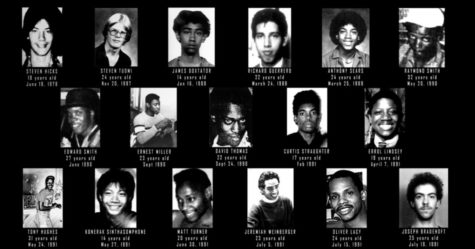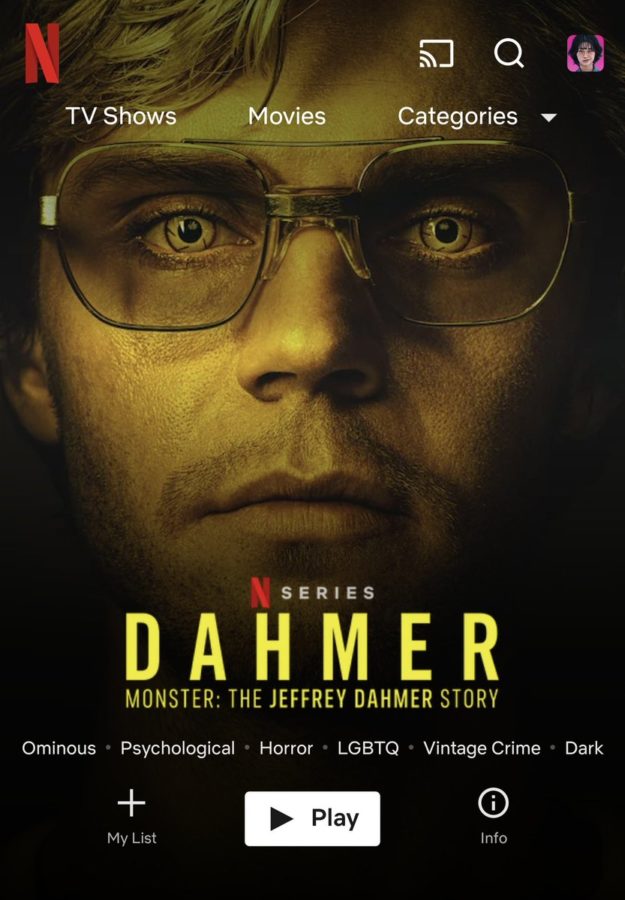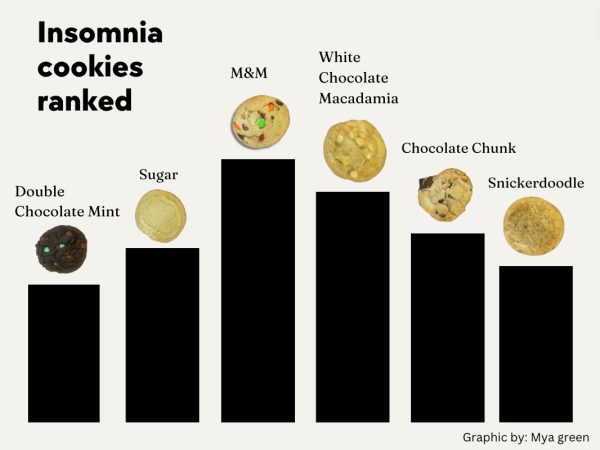Dahmer-Monster: The Jeffrey Dahmer Story is a monstrosity
November 28, 2022
Netflix recently released a new documentary series on September 21, 2022, titled “Dahmer-Monster: The Jeffery Dahmer Story,” which is a biographical crime drama created by Ryan Murphy and Ian Brennan.
Within its first week after debuting, the show had already racked up 3.66 billion minutes viewed. People were talking about it almost everywhere I went.
The good news is I love being a hater. The bad news is I don’t know if Netflix could have produced a worse series.
Initially, I attempted to avoid the show. From the description Netflix gives of it alone, I knew I wasn’t interested. However, as criticism spread across my social media, all while I heard people raving about it at school, I decided to watch it. I needed to know the truth.
I didn’t expect much from the show, at least nothing good. I tried to keep an open mind though. Netflix made claims that the show would give light to the lives of the victims and I was hoping that would be true. Unfortunately, it wasn’t.
From the moment the introduction music played throughout my living room to when the credits started to roll, I felt nothing other than disgust from the first episode. Had I not been so eager to leave a review, I would have turned it off. In fact, I paused the first episode nine times sitting through it.
As I watched, I was left with one question bouncing around my idle mind.
“Who is this show for?” Many have made claims that the show spreads awareness as it’s based on real events. This argument has been made to defend nearly all true crime productions. Despite this, awareness isn’t what keeps people engaged.
When people consume this genre, they become more aware of crime, which spreads fear. It sends the message that people are likely to hurt others.
It is good for people to be aware of the dangers that may potentially lurk in their lives, but an infatuation with the most horrific crimes committed across the world is not a realistic reflection of that.
According to the FBI in 2021 there was an estimated 22,900 murders in the US for the year while the consensus recorded the population as 33.9 million. That makes the absolute average likelihood a person will be murdered 0.00068.
Of those murders, a majority occurred within families, not a stranger on the street. Despite this, true crime stories produced for entertainment have a tendency to revolve around cases of first-degree murder.
That is because this genre of entertainment isn’t about spreading awareness, it’s fear-mongering for profit. People living with a constant fear of a strangers’ ability to potentially cause harm to them doesn’t protect them from anything. It creates an alienating experience that limits their ability to put trust in others.
The graphic imagery included does not add to the story either. It is not educational, and I don’t even believe it should be considered entertainment. At its best, it is shock value, which is what this show rides on.
There are multiple other documentaries about Jeffery Dahmer. From “The Secret Life: Jeffery Dahmer” (1993), to the actual tapes of Dahmer confessing to his crimes, there is a plethora of resources available to anybody who wants to learn about Dahmer’s crimes. What good does another documentary do?
To say it gives peace to the victims or keeps their memories alive is a lie and nothing else. The people Jeffery Dahmer murdered are not the way they died. They lived lives and deserve to be remembered for who they were, not how they went.
Yet this show only seems to focus on that. Watching how Jeffery lures his victims into his home and hearing the lies he would tell, that isn’t remembering the victims. That is simply divulging in a dramatization of a serial killer.
Dramatizations can be used wonderfully to teach people. They also have a tendency to make people sympathize with the main character, which almost all TV shows do. That is what happens in “Dahmer-Monster: The Jeffery Dahmer Story.”
Dahmer becomes glorified through his presentation in the show. There are very few scenes that show the mistakes he made. His crimes come off as perfectly planned and are presented as if they were flawlessly executed.
That couldn’t be farther from the truth. Dahmer had been arrested four times before his conviction and was regularly kicked out of places such as bars. He wasn’t organized and regularly made mistakes that could have gotten him caught. A
long with his flaws, events from Dahmer’s childhood are cherry-picked in an attempt to contextualize how he became a monster. I don’t believe that the creators had this intention, but the impression it gives is clear. The scenes that they chose to showcase display Dahmer’s weakest moments and act as an explanation for why he was so deranged. This led people to sympathize with him and in doing so there is a sort of justification for his actions.
Multiple people online began to sympathize with Dahmer after watching the series. This was especially prominent on TikTok. Multiple users uploaded content claiming they felt bad for the killer.
Edits of Dahmer were also made using clips from the show that portrayed him in a sensual way. The sexualization of a serial killer leads to the romanization and then excusal of their actions.
Dahmer set an example to people with his murders, which is why he is one of the most well-known serial killers. Anybody who minimizes any of Dahmer’s actions sends a message to others that if they were to commit such crimes, it would at least be okay to some people. That type of validation only encourages them.
On top of this, family members have spoken out against the show. Errol Lindsey’s cousin, Eric Perry, tweeted about his family’s opinions about it on September 28. “my family, (the Isbells) are pissed about this show. It’s retraumatizing over and over again, and for what?”
Netflix never contacted any family members whose testimonies they included throughout the show. They have no legal obligation to do so, but they knew there were family members out there who lived through the real trial that would see the series.
From a moral standpoint, I simply don’t understand how the whole entire team neglected this. They had more than enough people, time and resources to contact the families. It’s choosing to ignore the potential pain for the sake of greed, something they should be ashamed of.
I can only think of one good effect the show may have had altogether, which is educating people about how bigotry allowed Jeffery to remain innocent when he clearly should have been investigated. However, this isn’t the theme all throughout the show.
There are so many aspects of bigotry that could have been expanded upon, yet Netflix neglected it. The back-and-forth plot made the show seem like a cash grab.
There was room for important conversations to be had from and within this series, however Netflix went about it entirely wrong. The emphasis placed on series like this has done damage to so many lives yet it serves a minimal purpose.
My heart goes out to the victims’ families who have suffered at the hands of this show. Say their names and remember their lives.
Curtis Straughter, Steven Mark Hicks, Richard Guerrero, Jeremy Weinberger, Jamie Doxator, Ricky Beeks, Oliver Lacy, Errol Lindsey, Konerak Sinthasomphone, Ernest Miller, Anthony Hughes, Joseph Bradhoft, Matt Turner, Anthony Sears, David C. Thomas and Edward W. Smith were real people.
Their murders are not entertainment.








